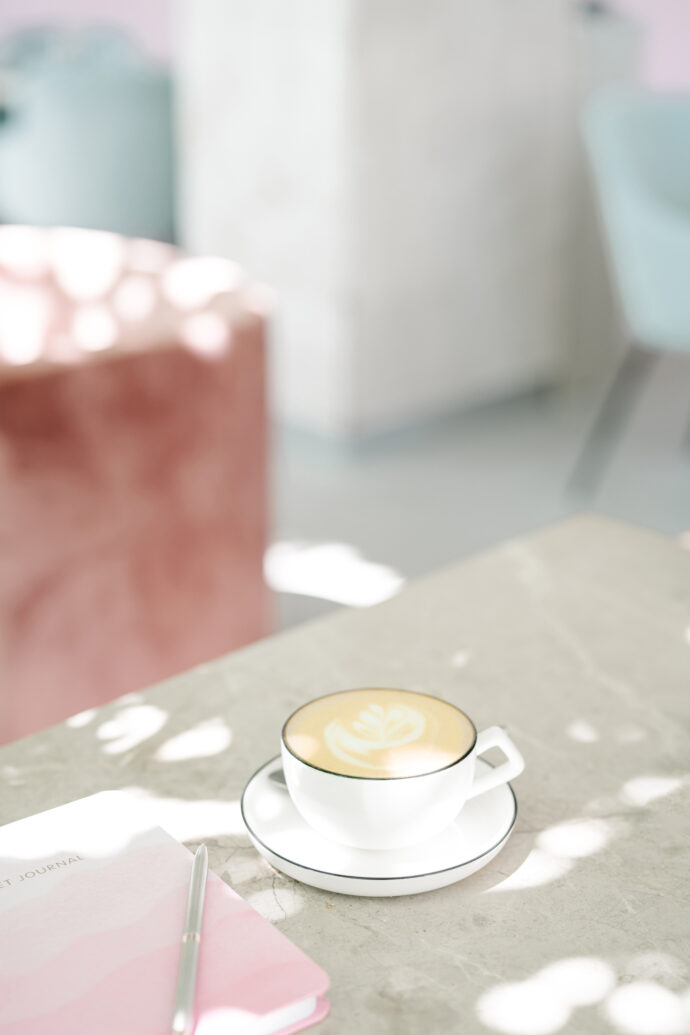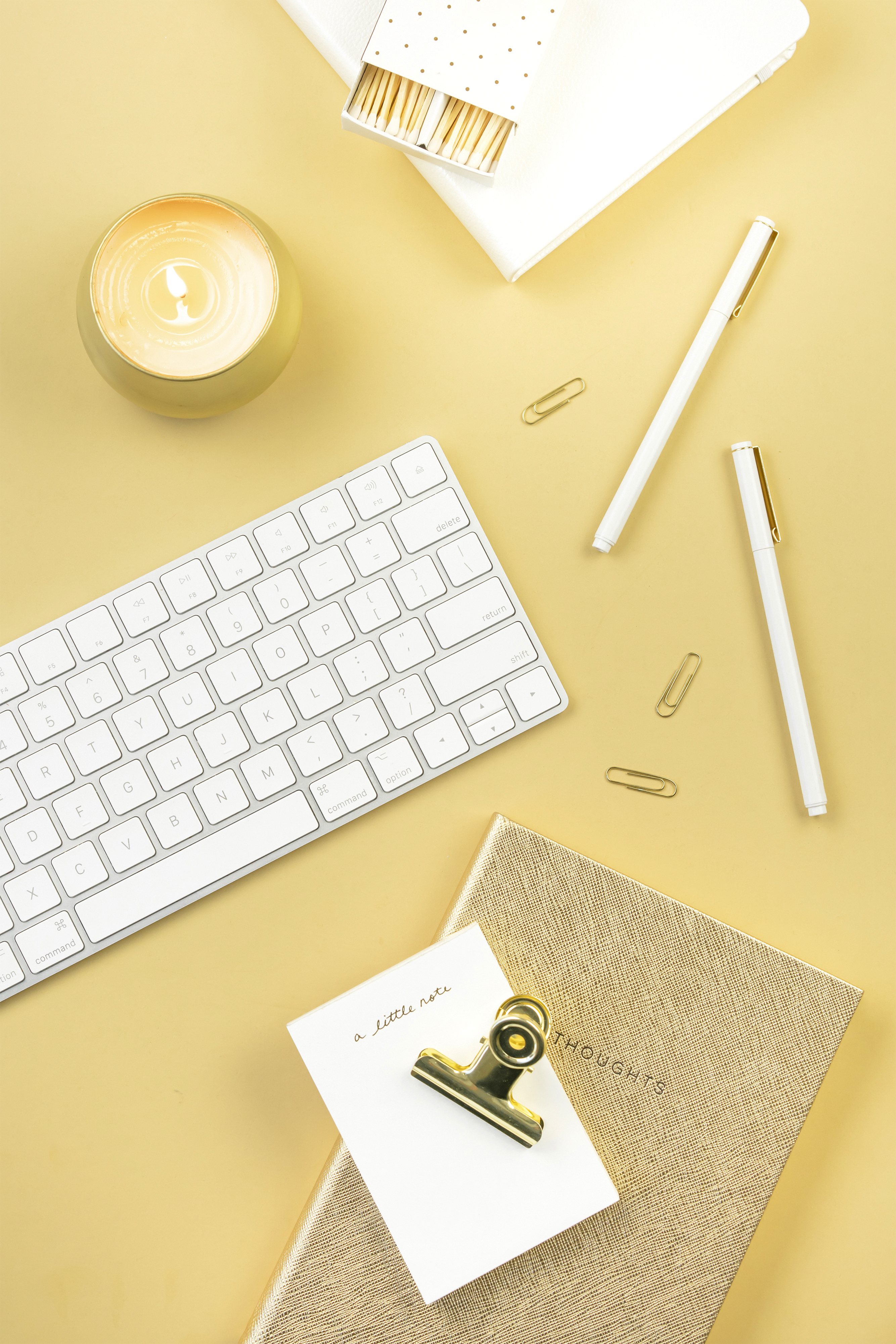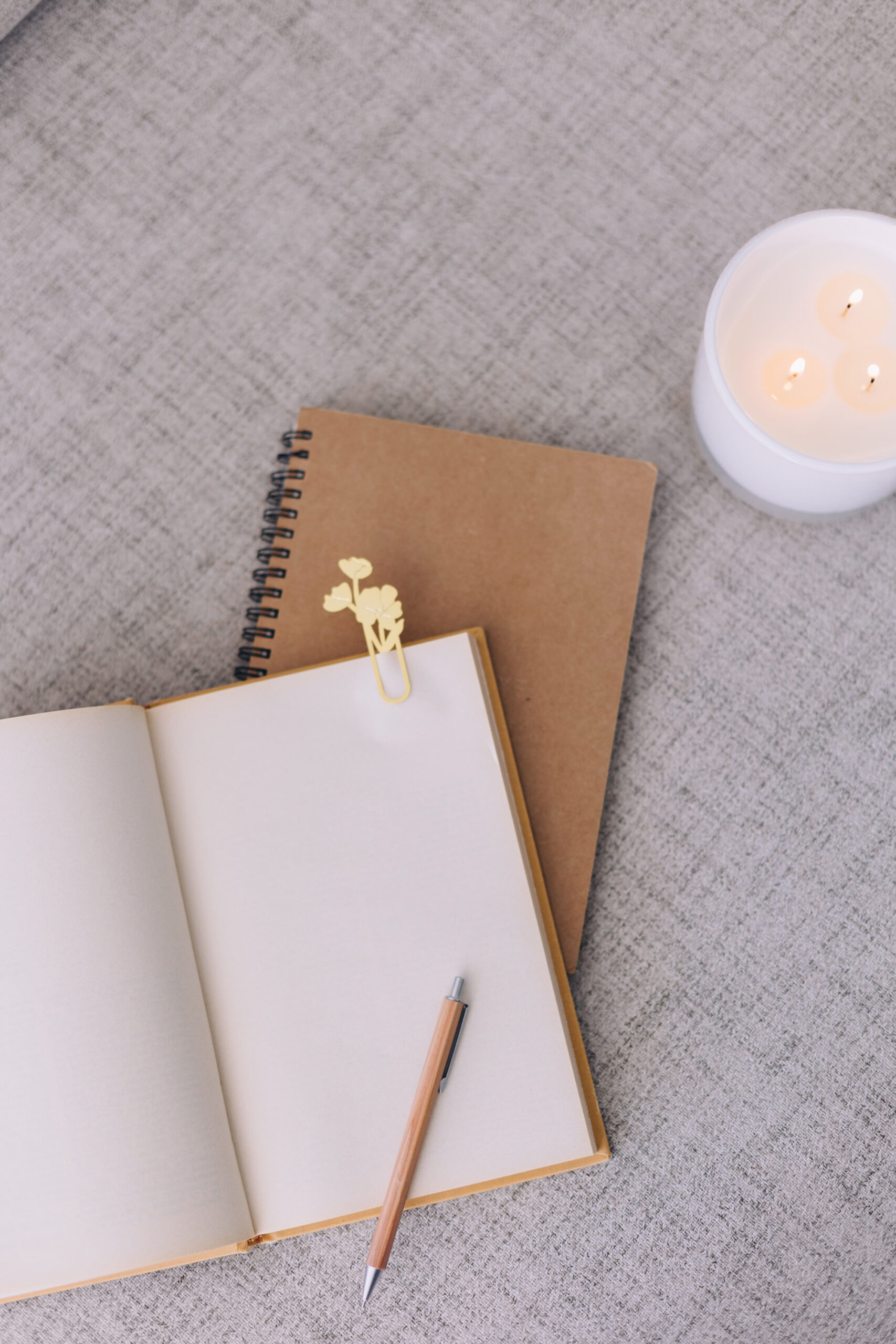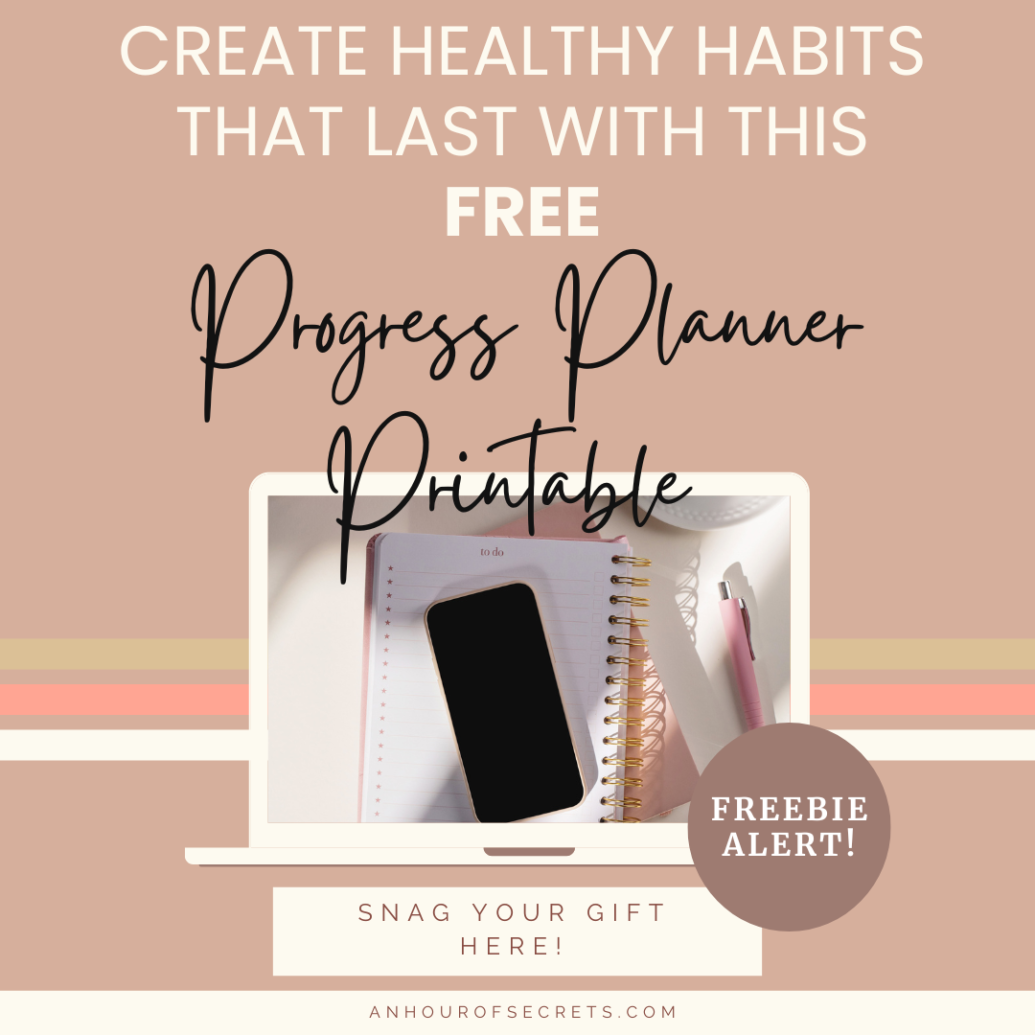Learning how to journal for mental health is crucial to help us overcome the stress and anxiety that have naturally become apart of our daily lives.
Fortunately, a growing trend has emerged as a powerful tool for self-care – journaling.
This simple yet effective practice has been gaining momentum for its positive impacts on mental health.
Journaling offers a sanctuary for our thoughts, a safe space to pour out our feelings and reflections.
It’s a therapeutic way for us to process our own emotions and helps us manage our daily stress.
Putting pen to paper can be cathartic, helping us untangle our thoughts and gain clarity when the uncertainties of life begin to shaken our judgement.
It’s in these moments that we need to learn to embrace the discomfort, lean into the chaos, and let it refine our focus.
Clarity emerges when we quiet the noise, tune into our inner compass, and align our actions with our deepest values and aspirations.
So how do we do that? How do we tune into ourselves and quiet the distractions?
That’s where journaling comes in!
It’s the perfect tool to help guide us towards growth and clarity.
So get ready guys! We’re about to dive into the mind-blowing realm of journaling. As you grab your favorite pen and notebook, get ready to unlock some truly incredible benefits.
I’m talking stress relief, self-discovery, and a whole lot of personal growth. So let’s dive in and explore what journaling can do for your mental health.
A healthier mind and soul are just a few pages away!

How to Journal for Mental Health
Journaling is a powerful tool that can have significant benefits for our mental health.
Benefits of Journaling:
• Increased Self-Awareness: Journaling allows you to reflect on your thoughts and emotions, helping you gain a deeper understanding of yourself. Writing things down will help you learn about yourself in ways you never could otherwise. It’s about setting time aside for deep connection and inner healing.
• Reduced Anxiety: Writing about your worries and fears can provide a sense of relief and calmness. Sometimes writing things out can be a wonderful way to help cope with whatever it is that’s bothering you.
• Improved Mood: Expressing your feelings on paper can lift your mood and bring a sense of positivity and happiness.
• Enhanced Problem-Solving Skills: Journaling can help you organize your thoughts and find effective solutions to challenges. It helps you unravel the jumble of thoughts in your mind. Allowing you to see and think much more clearly and with focus.

Getting Started with Journaling
Starting your journaling journey is an exciting way to give your mental health a much-deserved makeover.
For me, it’s a therapeutic and cathartic mental health boost that I personally look forward to daily. I started out journaling in the mornings, but discovered huge benefits to writing morning and night, before falling asleep.
Getting things out of my head and onto paper helps me feel clear, organized and overall just more in control.
Choosing the Right Journal
Ok, let me just say I love new journal day! One of my favorite days is when I’m nearing the end of my notebook and it’s time to venture out and pick up a new one.
I love searching for that perfect notebook that’s going to be my new best friend for the next couple of months.
And having the right journal makes all the difference! There are so many options to consider when it comes to choosing the right one. You really want to find one that resonates with your style and your needs.
Some might prefer the simplicity of a traditional notebook (that’s more my style), but others might prefer the flexibility of a digital journal app, or the creativity of a bullet journal.
The type of journal you choose doesn’t really matter. It’s whatever you prefer most. The important thing to remember is to pick a format that inspires you to write regularly.

Setting Up a Journaling Routine
Staying consistent with your journaling practice is key to gain the wonderful benefits and keep seeing results.
Find a time during your day that works best for you, whether it’s in the morning to set daily intentions, or in the evening to reflect on your experiences from the day. Or if you’re like me, maybe it’s both!
By making journaling apart of your daily schedule, you can begin to create a habit that promotes mindfulness and self-discovery. It’s something you’ll look forward to every day.
Prompts and Exercises
Sometimes, getting started with journaling can feel overwhelming.
Try using prompts and journaling exercises to help get you into the flow. These can help you get more comfortable and break through any writer’s block.
Here are some starters to get you going:
• Write about a moment that brought you joy today.
• Reflect on a challenging situation and explore what you learned from it.
• List three things you are grateful for and why they matter most to you.
By incorporating prompts into your journaling routine, you might begin to ask yourself questions that you hadn’t asked before. This will help deepen your self-awareness and help you learn more about yourself.
Some prompts can be a little more difficult to answer than others, but don’t hold back. Write down whatever comes up. There’s no right or wrong answer and no one but you will ever read it.
Also on that note, try not to get too hung up on grammar, typos or even your own handwriting. Just let it flow onto the page however it wants to come out.
Remember, journaling is a personal journey. Feel free to experiment with different formats, prompts, and routines until you find what works best for you.

Gratitude Journaling for Mental Health
Gratitude journaling is a powerful tool that can shift your focus towards positivity and abundance, and away from negativity and lack.
Regularly noting down things you are grateful for can completely transform your mindset and outlook on life!
Just a few moments each day is really all it takes. Soon, you’ll begin to actively train your brain to seek out and focus on the positive aspects of your life.
It’s almost impossible to stay stuck in negativity when you’re consciously focusing on the good that surrounds you. No matter how big or small.
From the beauty of nature to the love of friends and family, there’s always something to be thankful for. We just have to take the time to look.
So grab a pen and start listing those things that make you grateful – your positivity will soar!
Creative Journaling Techniques
Exploring creative journaling techniques offers a different point of view and an engaging way to express your thoughts and emotions.
There are so many different types of creative journaling out there.
- Art Journaling-where you combine images and words to capture your feelings.
- Collage Journaling– a dynamic fusion of mixed media, where you can incorporate all different kinds of materials like papers, fabrics, photographs, layering and arranging them into a visually captivating composition. The beauty lies in its spontaneity – you’re not bound by any rules. Just let your intuition guide you.
- Tracking your mood through colors or symbols can also help you gain insights into your emotional patterns and triggers. This can help create a deeper sense of self-awareness and spark some creativity along the way.
Seeking Professional Help
Journaling for mental health can be a valuable self-care practice, but it’s so important to recognize when professional help is needed.
Mental health professionals, such as therapists or counselors, can provide guidance and therapeutic interventions that you can combine together with your journaling practice.
If you find yourself struggling with overwhelming emotions or persistent mental health challenges, reaching out for professional help is a proactive step you can take towards healing.
Remember, seeking support is a sign of strength, not weakness.
Incorporating gratitude practices, exploring creative journaling techniques, and knowing when to seek professional help are integral components of enhancing your journaling experience.
Maintaining Consistency and Tracking Progress
Consistency in journaling is like watering a plant; it nurtures your mental health and promotes growth. But you have to keep up with it!
By reflecting on your entries regularly and setting achievable goals, you can track your progress and celebrate every step forward.
If you’re having some trouble maintaining a consistent routine, keep reading for some tips that might help.
Reflecting on Entries
Take a moment to revisit your past journal entries. Reflect on the emotions you felt, the challenges you’ve faced, and the victories you’ve celebrated.
This will help you identify patterns in your thoughts and feelings, gaining valuable insights into your mental well-being. It’s like connecting the dots to see the bigger picture of your emotions and behaviors.
Reflection can also guide you towards what you should write about next. Maybe there’s a topic you want to explore a little further.
Reflecting on past entries can also help you acknowledge your growth throughout your journaling journey and help guide you forward.

Setting Realistic Goals
When it comes to journaling for mental health, setting realistic goals is key to staying motivated and consistent.
Maybe you want to write in your journal every day for a week or jot down three positive moments before bedtime. Whatever your goal is, remember, progress is progress, no matter how small.
Celebrate each milestone, no matter how insignificant it may seem. By acknowledging the effort you put into your journaling routine and celebrating your achievements along the way, you’re fostering a positive mindset and reinforcing your commitment to self-care.
Stay committed to your journaling practice, celebrate your wins, and embrace the journey towards a healthier you.
Bringing this to an End
Remember, it’s not about perfection, but about the process of self-reflection and self-expression.
Learning how to journal for mental health is a wonderful way to help you gain clarity and guidance when you need it the most.
And there’s no right or wrong way to journal—find a method that works best for you and start making it a consistent practice in your daily routine.
Your mental health journey begins with a single pen stroke. What will you write about today?
Ps. Wanna make journaling apart of your daily routine? Snag this free Progress Planner Printable and begin turning good intentions into lasting habits!



Set Achievable Goals in 2025: How to do a Powerful Reset - An Hour of Secrets
[…] it really comes down to clearing the clutter, and I do mean all the clutter! The mental, the physical, and don’t even think I forgot about the […]
Slow Living Made Simple: How to Start Living Intentionally - An Hour of Secrets
[…] distractions, slow living lets you spend more time in the present. This shift improves your mental clarity, supports emotional stability, and helps you connect more authentically with yourself and […]
Embracing Slow Living in Winter: Simple Ways to Stay Calm, Grounded, and Healthy - An Hour of Secrets
[…] it’s journaling or maybe it’s reading. Your […]
Transform Your Nights. Evening Routines for a Better Tomorrow - An Hour of Secrets
[…] Write in a journal: Reflecting on your day can be both cathartic and relaxing. It also helps get those jumbled […]